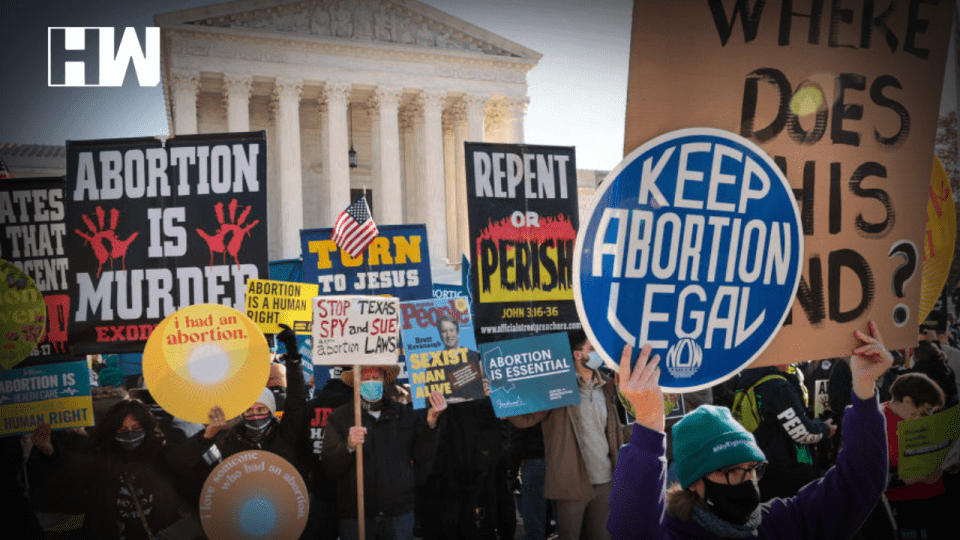The decision on abortion rights is likely to trigger a flurry of new regulations that would severely restrict or outright forbid and criminalize abortions in about half of the 50 US states.
Washington: In a landmark decision that overturns 50 years of constitutional safeguards on one of the most contentious and violently contested topics in American politics, the US Supreme Court on Friday abolished the right to abortion.
The conservative-dominated court declared that individual states can now legalize or restrict the procedure on their own, overturning the historic “Roe v Wade” ruling from 1973 that established a woman’s right to an abortion. The court held that Roe v. Wade and Casey are invalid and that the people and their elected officials should once again have the power to control abortion. “The Constitution does not confer a right to abortion,” the court declared.
Abortion “presents a serious moral dilemma on which Americans hold radically diverse views,” Justice Samuel Alito said in the majority judgement. The right to regulate or forbid abortion is not prohibited by the Constitution, according to him.
The three liberal judges on the panel dissented.
The decision is likely to trigger a flurry of new legislation that severely restrict or outright prohibit abortions in approximately half of the 50 US states, forcing women to travel great distances to jurisdictions that still allow the practice.
The opinion overturned the nation’s highest court’s 1973 Roe v Wade decision, which held that women have a constitutional right to privacy over their own bodies and therefore the right to an abortion.
The majority of Alito’s reasoning is consistent with his draught ruling, which was leaked in an exceptional way in early May, prompting protests around the nation and increased security at the court in downtown Washington.
After an armed man was detained on June 8 close to the residence of conservative justice Brett Kavanaugh, barricades were built around the court to keep the demonstrators assembled outside at bay.
The court’s decision goes against a global trend that has seen abortion restrictions loosen up, particularly in nations like Ireland, Argentina, Mexico, and Colombia where the Catholic Church continues to have significant sway.
Religious Right Triumphs
The anti-abortion group is anticipated to continue to campaign for an outright national ban despite th religious right’s 50-year win in their battle against the procedure.
The decision was made possible by the former Republican president Donald Trump’s nomination of Amy Coney Barrett, Neil Gorsuch, and Kavanaugh as three conservative justices to the Supreme Court.
The Mississippi statute that would limit abortion to 15 weeks was the subject of the case before the court, but some justices made it clear during the case’s hearing in December that they were willing to go further.
Following the Supreme Court’s decision, 13 states have passed “trigger laws” that forbid the act, according to the Guttmacher Institute.
Ten other states have bills that would either outlaw abortion after six weeks, when many women don’t even realize they are pregnant, or pre-1973 laws that might become effective.
Women who live in states with severe anti-abortion legislation will either have to carry their pregnancy to term, have a covert abortion or get abortion pills, or leave their state and move to one where the operation is still permitted.
In preparation for a surge, a number of Democratic-run states have taken efforts to make abortion more accessible, and clinics have also reallocated their resources.
However, travel is costly, and pro-choice organizations claim that abortion restrictions will have a negative impact on impoverished women, many of whom are Black or Hispanic.
As an independent media platform, we do not take advertisements from governments and corporate houses. It is you, our readers, who have supported us on our journey to do honest and unbiased journalism. Please contribute, so that we can continue to do the same in future.

